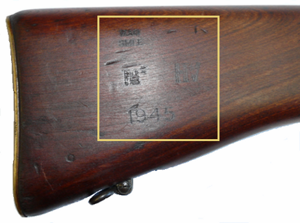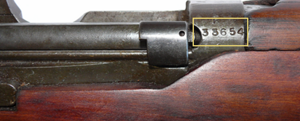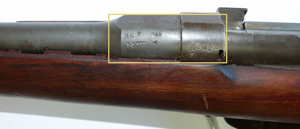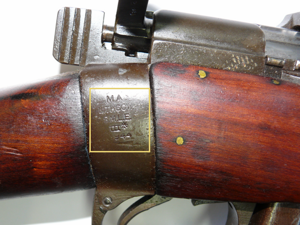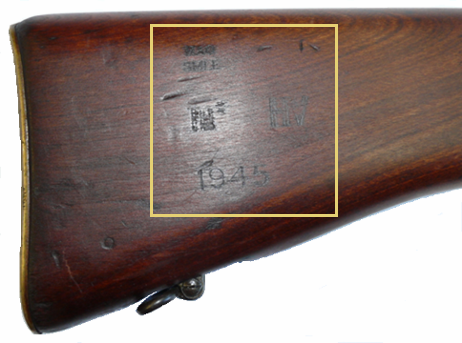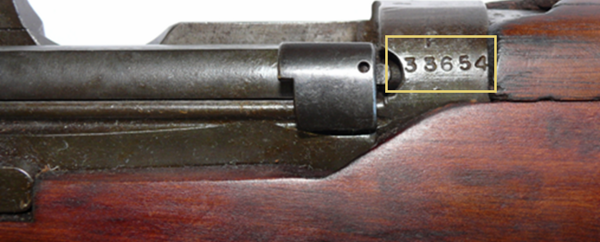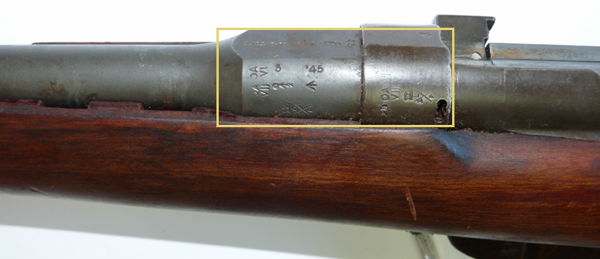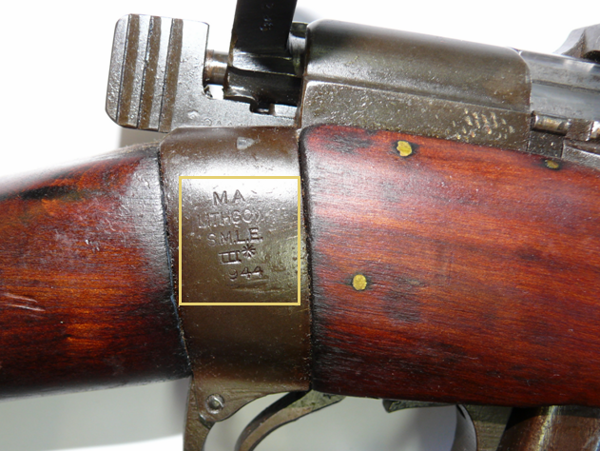Rifles manufactured in the USA may have "UNITED STATES PROPERTY” on the left side of the receiver. Some of the Indian-made weapons can be found using 7.62 NATO caliber. The Lee-Enfield family of rifles is the oldest bolt-action rifle design still in official service. Lee-Enfield rifles are used by reserve forces and police forces in many Commonwealth countries, particularly Canada, where they are the main rifle issued to the Canadian Rangers, and India, where the Lee-Enfield is widely issued to reserve military units and police forces. Many Afghan participants in the Soviet invasion of Afghanistan were armed with Lee-Enfields (a common rifle in the Middle East and South Asia).
 © BwVC
© BwVC









